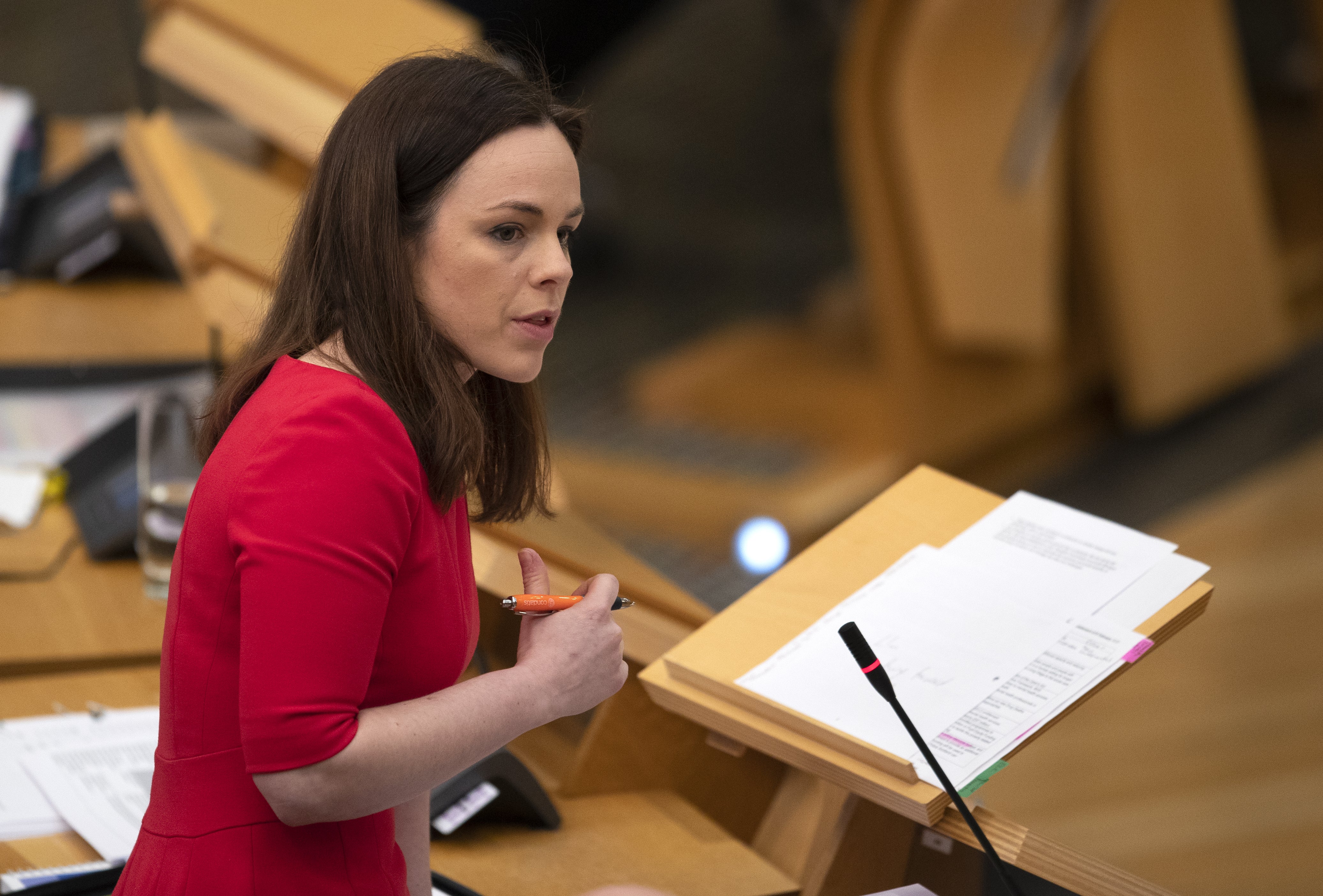Forbes facing ‘challenging’ budget this week, despite record block grant
Experts at the Fraser of Allander Institute said the budget was taking place amid a ‘challenging context’.

Economics experts have warned that this week’s Scottish budget will be “really challenging” despite Finance Secretary Kate Forbes having been given the largest-ever block grant from Westminster in the history of devolution.
While the lump sum the Scottish Government will receive for 2022-23 is 8% higher in real terms than it was in 2019-20 – before the coronavirus pandemic – the loss of additional cash to deal with Covid-19 means overall resources will be “significantly lower” next year when compared with the current year.
The warning on the “challenging context” surrounding Thursday’s draft Scottish budget came from economics experts at the Fraser of Allander Institute.
David Eiser, an economist at the think tank, said the block grant from Westminster was “still the key factor determining the overall size of the Scottish Government’s spending envelope”.
He said having a block grant 8% higher than before the pandemic “might well sound generous, but actually I think to deal with the pandemic’s legacy and the pressure on public services it is really not very generous at all”.
While the pandemic resulted in “pretty exceptional” levels of spending, with the Scottish Government allocated £8.6 billion and then £4.9 billion in special Covid funding over the last two years, Mr Eiser noted: “That special Covid funding drops out of the equation in 2022-23.
“What we are left with is a block grant that is significantly higher, about 8% higher in real terms than the block grant in 2019-20 before the pandemic, but is nonetheless significantly lower than the total number of resources the Government has had available to it this year.
“And while the direct impacts of the pandemic on public services, we hope, are largely behind us, the pandemic does continue to have a legacy on public services and public service spending in 2022-23 and beyond.”
Even though you can look at this and say this is the highest real-terms block grant since devolution, it’s a really quite challenging context
Mr Eiser, the author of the institute’s pre-budget report, continued: “Because of that this is a really challenging budget outlook, both in 2022-23 and the subsequent couple of years.
“Even though you can look at this and say this is the highest real-terms block grant since devolution, it’s a really quite challenging context.”
Health spending will absorb more than half of the increase in the Government’s budget over the next three years, the economic think tank found, with the health budget for 2022-23 likely to top £17 billion.
As as result, the report warned that some other areas “may see significant spending restraint between 2022-23 and 2024-25”.
On social care, Mr Eiser said promised funding levels may not be enough to meet the recommendations laid on in the Feeley review, which called for the establishment of a national care service.
Speaking at an online event, he said: “The Government’s stated funding commitment in itself is probably not going to be enough to meet all the recommendations set out.
“The increase in the social care budget will need to be quite a bit more than that if all of the recommendations are going to be implemented.”
With a Scottish Government spending review expected early in 2022, Mairi Spowage, director of the Fraser of Allander Institute, said: “A challenging budget for 2022-23 is the precursor to a challenging spending review next year.
“Navigating the health and economic recovery from the pandemic, alongside longer-term commitments on climate change and inequality, will require a delicate set of budget decisions and trade-offs.
“This week’s budget will reveal how those choices and trade-offs have been made for 2022-23, but the more difficult trade-offs may be yet to come.”
Bookmark popover
Removed from bookmarks